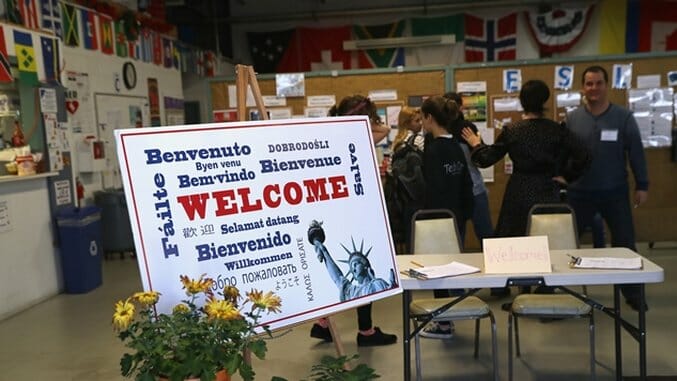Immigrants Are Driving Entrepreneurship in America
Photo by John Moore/Getty
In a hurry to the San Francisco International Airport in October, my parents and I stopped by a well-known Mexican-American chain restaurant. Tasty and quick, but of course it doesn’t compare to home cooking. We stop in, and my mom and I order our usual. My dad then orders his usual, tacos al carbon. The cashier asks him to repeat his order twice; mind you, it’s in Spanish (on the menu), he’s ordering in Spanish, and it’s a Mexican-American chain restaurant. The third time she asks and rolls her eyes, I could see him become discouraged and cave in with insecurity. I, unashamedly, repeat his order in Spanish in a more serious tone.
For a second, I imagine what it would have been like if my mom had opened a restaurant of her own, which she’s mentioned on occasion. They wouldn’t have to put up with bullshit like this—which, honestly, is nothing compared to what they’ve experienced in their time in the U.S. since they migrated from Mexico in the early 80s.
Both of my parents, and the parents of friends of mine who are also immigrants, have shared stories of being discriminated against-far more severe than being talked down to or scolded, including harassment. I’m not surprised why immigrants drive entrepreneurship in America. According to Vox “immigrants responded to a weak job market by turning to self-employment.” Instead of being discriminated against, at work and in one’s own neighborhood, immigrants have taken it upon themselves to provide a healthy lifestyle for themselves and their family.
-

-

-

-

-

-

-

-

-

-

-

-

-

-

-

-

-

-

-

-

-

-

-

-

-

-

-

-

-

-

-

-

-

-

-

-

-

-

-

-








































